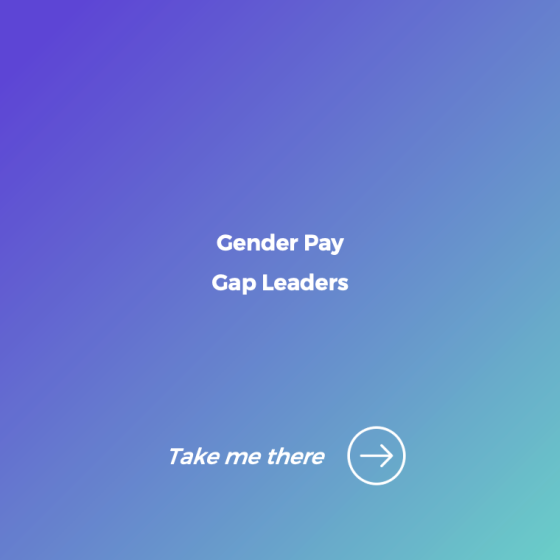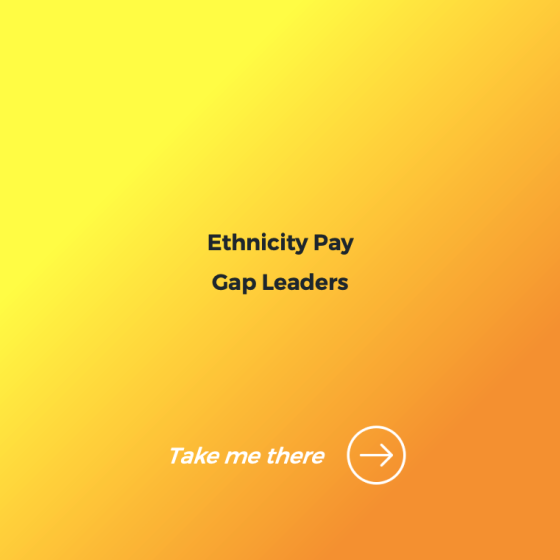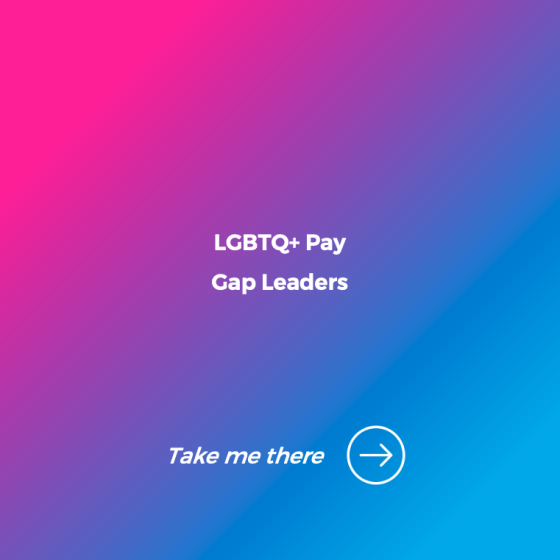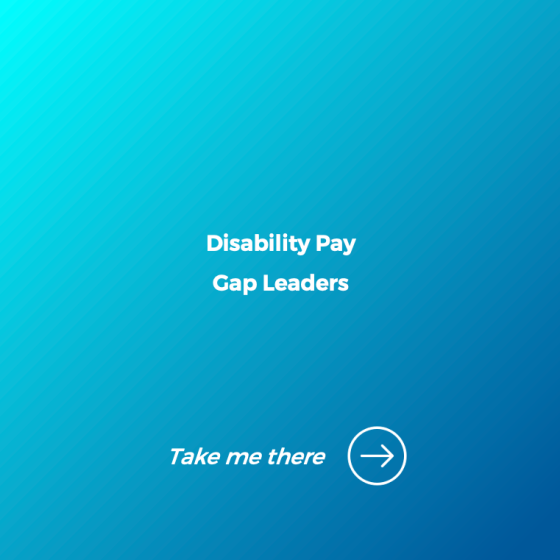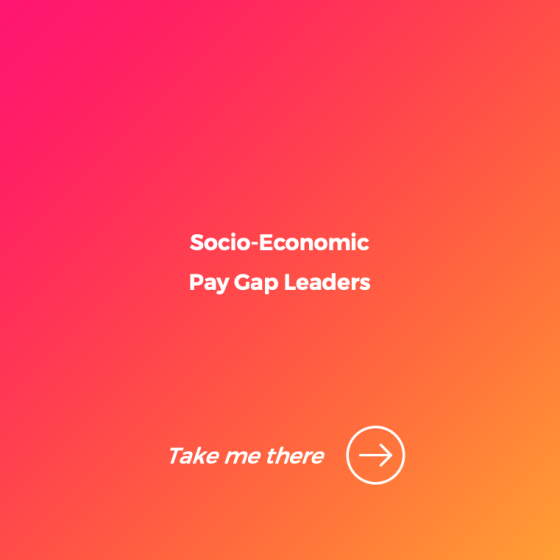‘This Leap Year, we’re all working a day for free, but underrepresented communities work far more than that.’
This leap year, everyone is working an extra day for free compared to last. But for many, “working for free” stretches far beyond February 29th.
This leap year Windō has found that women, ethnic minorities, LGTBQ+ and those identifying as disabled each have to work at least 17+ extra days to earn as much as their counterparts do in a year.
Debate has commenced this leap year over whether UK workers should be paid for an additional day of work. Sustainability transparency platform Windō examined how many more days underserved groups have to work to earn a full year’s salary, and they found:
👩💼 Women Work 19 Extra Days Every Year
This is the equivalent of working until the 28th January 2025
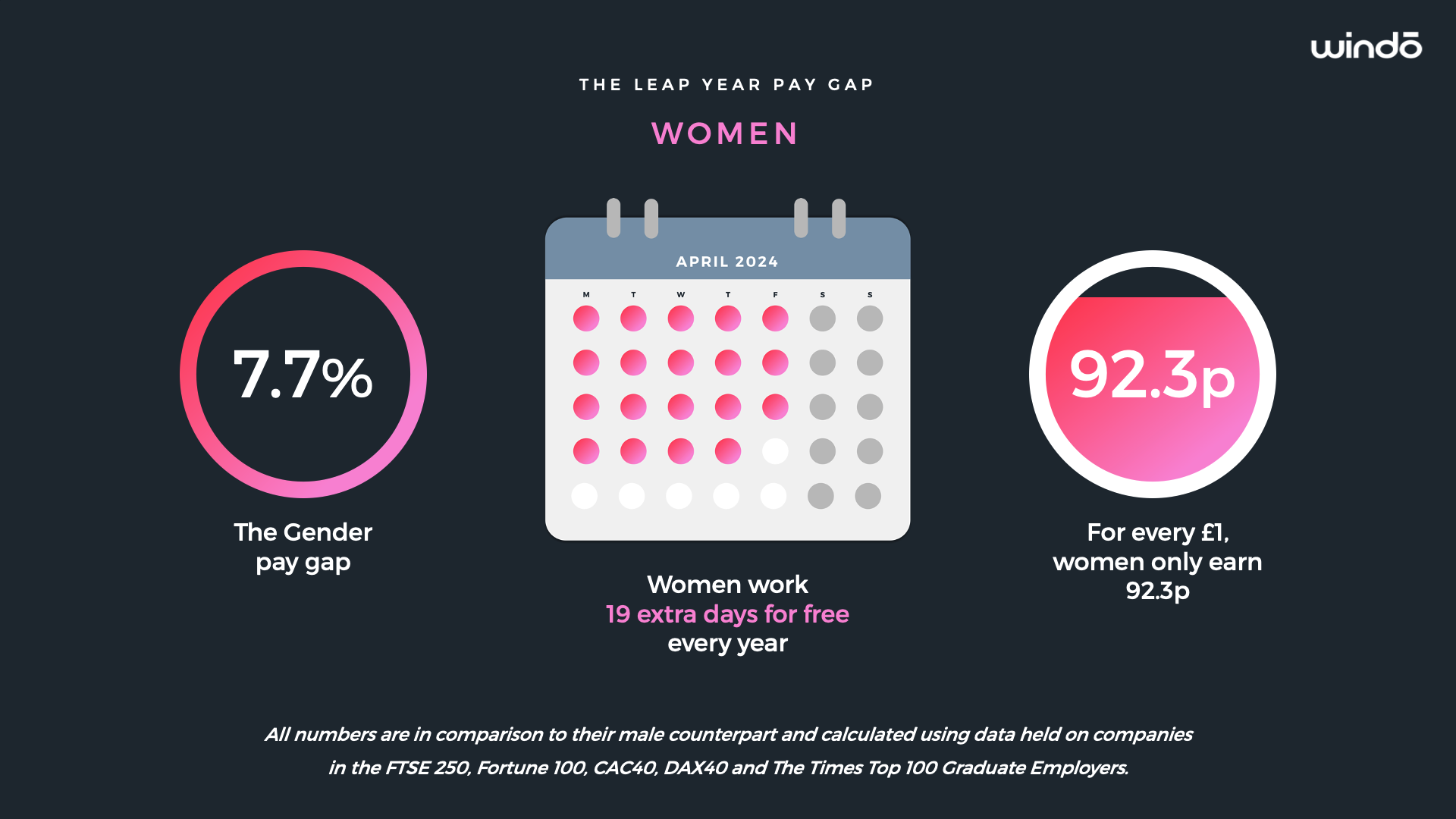
🌈 Those who identify as LGBTQ+ Work 17 Extra Days Every Year
This is the equivalent of working until the 24th January 2025.
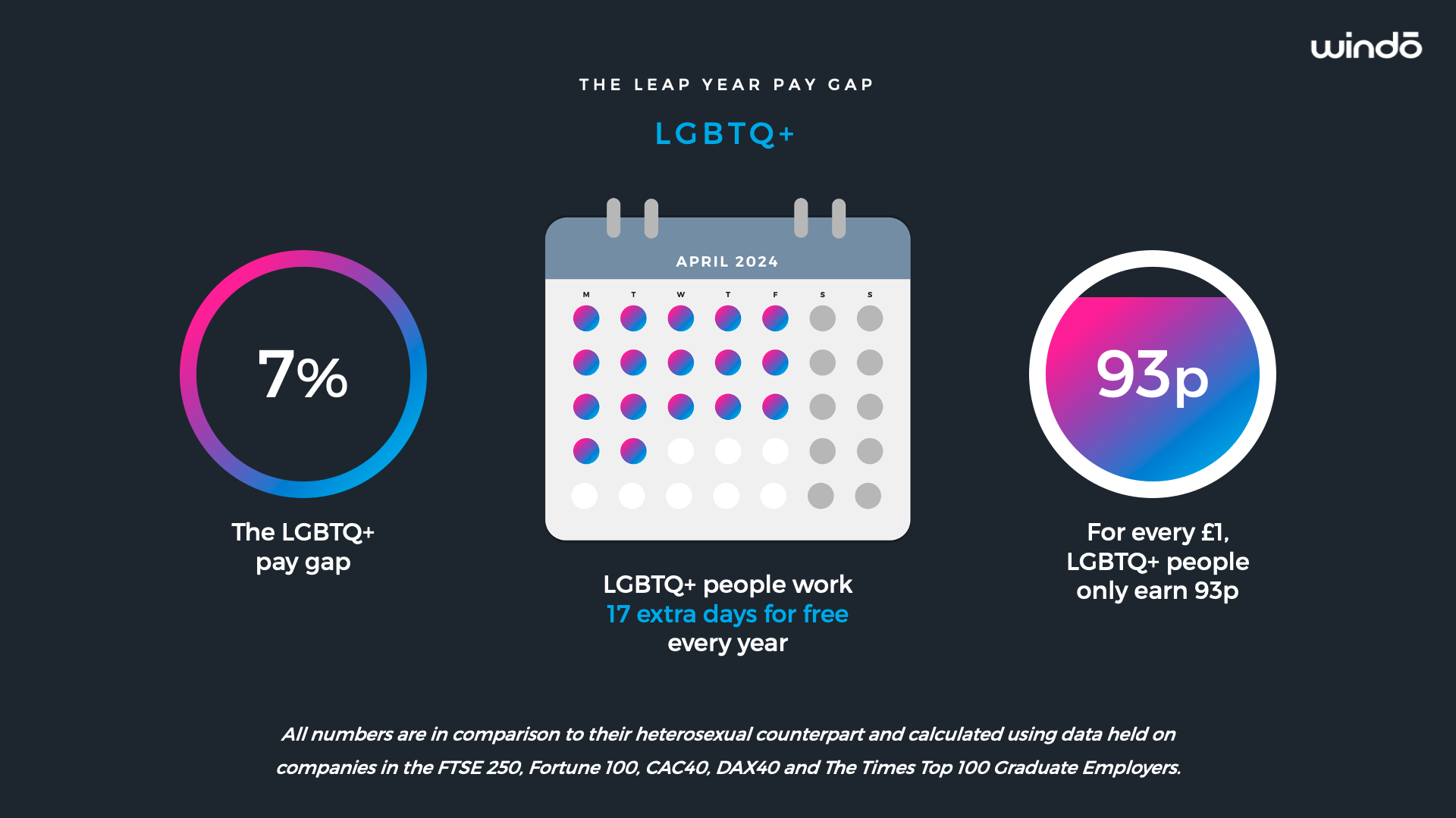
🧑🏿💼 Those from an Ethnic Minority Work 18 Extra Days Every Year
This is the equivalent of working until the 27th January 2025
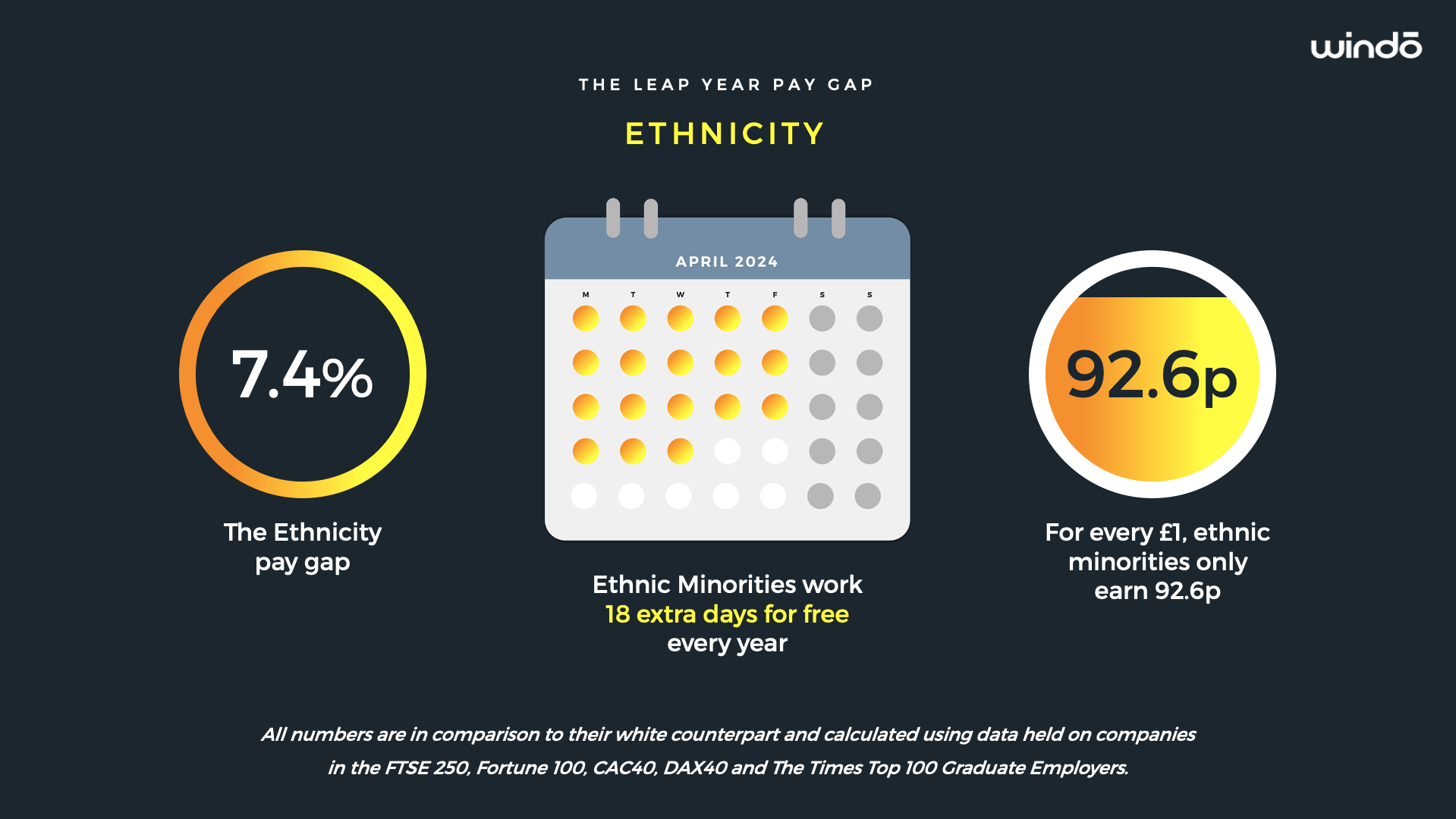
♿ Those who Identify as Having a Disability Work 25 Extra Days Every Year
This is the equivalent of working until the 5th February 2025
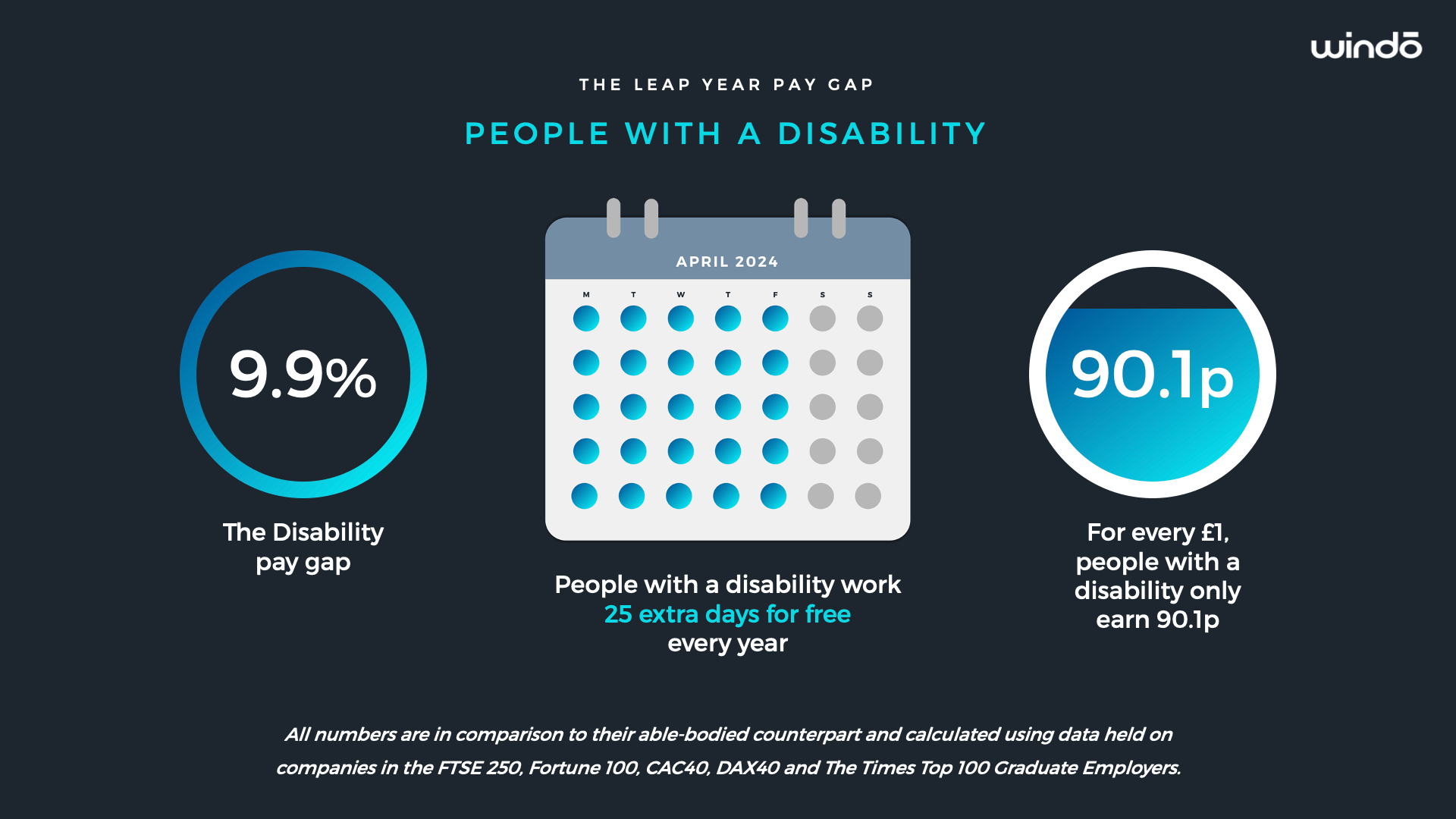
The UK gender pay gap is 7.7%, according to the ONS. On average, UK employees work 227 days a year – accounting for bank holidays and 25 days of leave. This means for the average 227 days worked in a year by a man, women would have to work 19 days into the next year to earn the same amount.
Inspired by this finding, Windō, which also tracks ethnicity, LGTBQ+ and disability pay gap data, examined its corporate transparency platform to see how many ‘extra days’ employees from those groups had to work to earn a ‘full’ year’s pay. Using pay gap data reported by UK-operating companies on its platform, including public companies, law firms and consultancies, the platform uncovered the following:
- Ethnicity: Pay Gap of 7.4% – Workers from ethnic minority backgrounds have to work 18 extra days compared with their white counterparts
- LGBTQ+: Pay Gap of 7.0% – Those from the LGBTQ+ community have to work 17 extra days compared with their heterosexual, cisgender counterparts
- Disability: Pay Gap of 9.9% – Those identifying as having a disability must work 25 extra days compared with their abled-bodied counterparts
- Socio-Economic: Pay Gap of 27.8% – Those from lower socio-economic backgrounds work 87 extra days compared to their counterparts from a higher socio-economic background
Windō’s data highlights that pay gaps exist across all dimensions of diversity and they’re more than just numbers; they represent days, weeks, and a silent clock of inequality.


